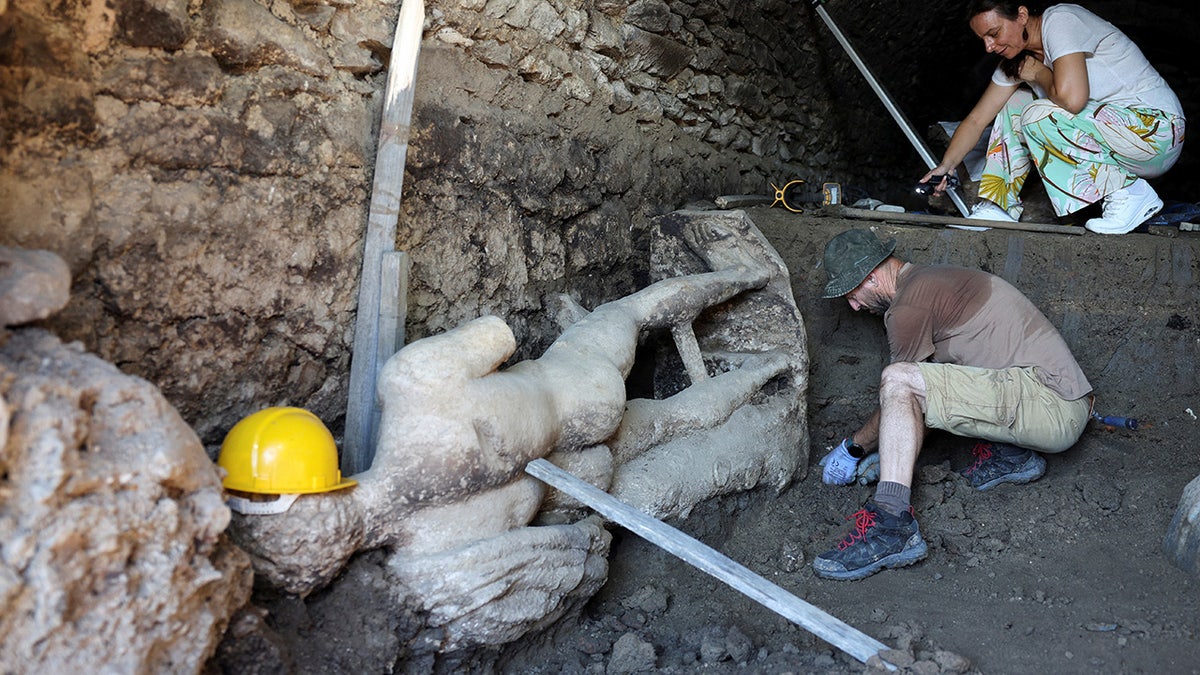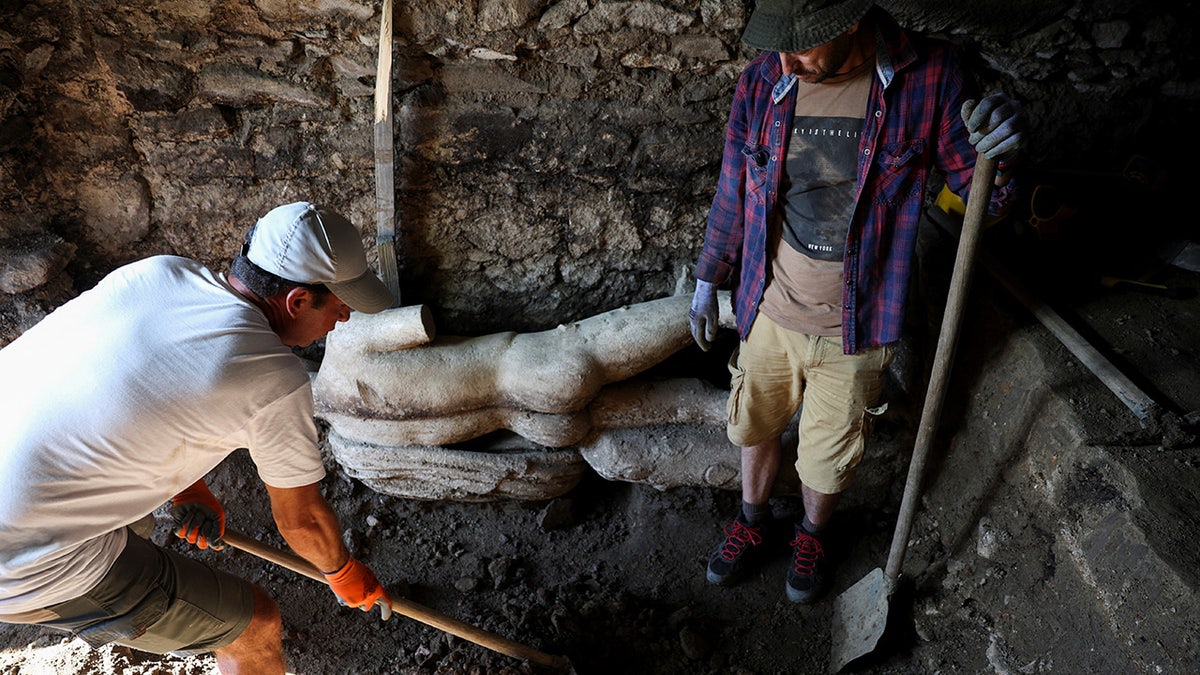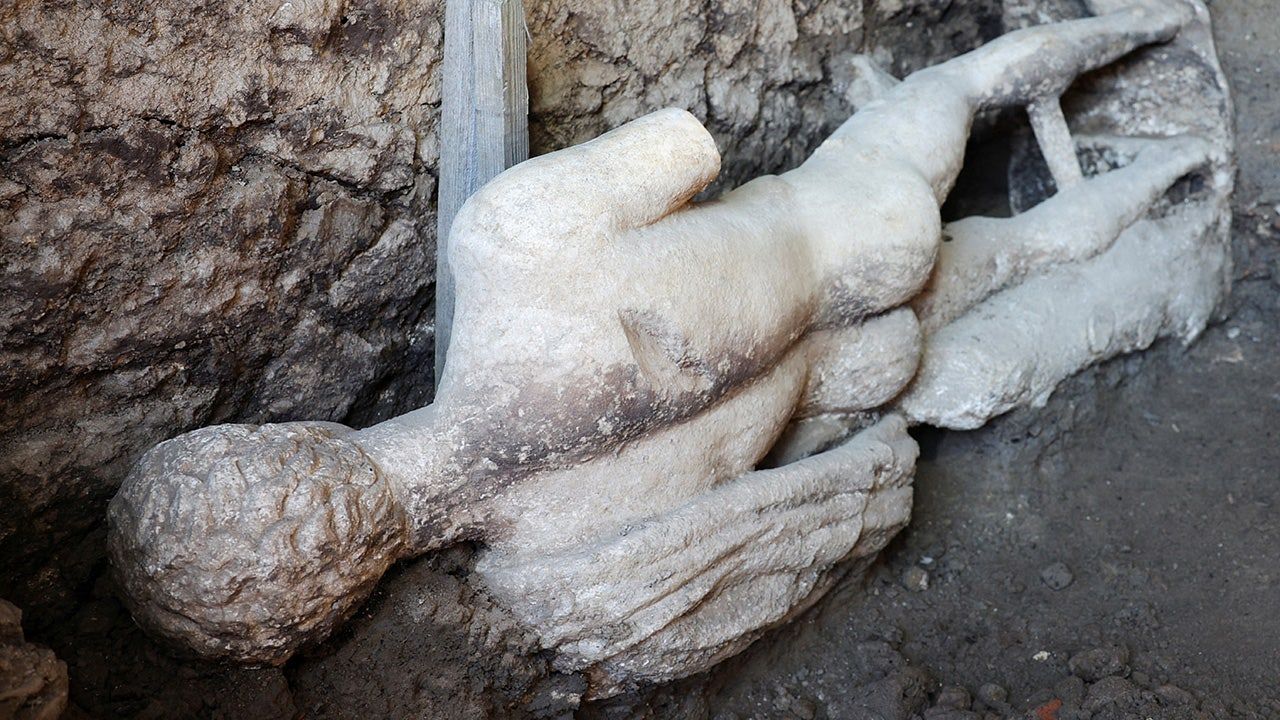Archaeologists near Bulgaria's southeastern border with Greece discovered a nearly 2-meter (6.6-foot) statue of the ancient Greek god Hermes during an excavation this week.
The unexpected find occurred during the excavation of an ancient Roman sewer in the abandoned city of Heraclea Sintica, which was founded by King Philip II of Macedon between 356 and 339 BC.
The sprawling city was devastated by an earthquake in 388 AD.
DIVERS DISCOVER 'HIDDEN TREASURES' DURING EXPEDITION TO ANCIENT SHIPWRECK
Archaeologists near Bulgaria's southeastern border with Greece discovered a nearly two-meter-tall statue of the ancient Greek god Hermes during an excavation this week. (Reuters/Spasiyana Sergieva)
“Her head is preserved. (It is in) very good condition,” said lead archaeologist Lyudmil Vagalinski, explaining that the marble statue had been placed in the sewer and covered with earth, possibly when Christianity was adopted as the official religion of the Roman Empire and pagan symbols were banned.

The statue was found during an excavation at the ancient city of Heraclea Sinitica, near what is now the village of Rupite, Bulgaria. (Reuters/Spasiyana Sergieva)
He added that the statue was a Roman copy of an ancient Greek original.
“Everything pagan was forbidden and they joined the new ideology,” Vagalinski said.
He added, “But they apparently took care of their ancient deities.”
ARCHAEOLOGISTS AMAZED WITH 'INTRIGUING' OBJECTS DRAWN BY CHRISTIAN PILGRIMS 1,500 YEARS AGO

The statue was well preserved, archaeologists said. (Reuters/Spasiyana Sergieva)
CLICK HERE TO GET THE FOX NEWS APP
Heraclea Sintica, today the Bulgarian village of Rupite, was abandoned around 500 AD after suffering a rapid decline following the earthquake.












